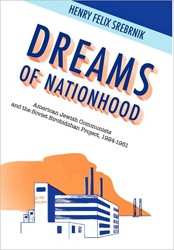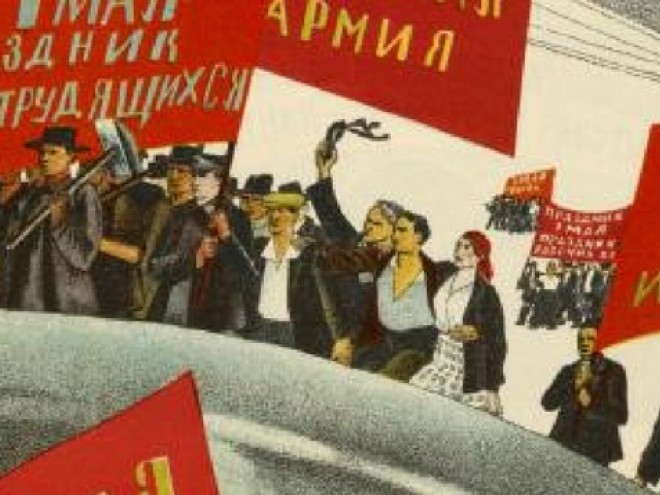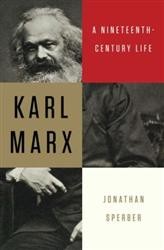American Jews figured disproportionately in radical movements (broadly speaking, socialism, communism, trade-unionism, and anarchism) in the late nineteenth and early-to-mid twentieth centuries, and even today, still vote disproportionately the “lefter” of the two dominant parties, and are active throughout the left. Tony Michels, a scholar of American Jewish history, in Jewish Radicals, has gathered excerpts from memoirs, newspapers, and magazines (often originally written in Yiddish), and other sources that provide an overview of experiences, motivations, ideas, and conflicts among the American Jewish left of that era.
In his introduction, Michels offers some basic history, observations, and speculation as to why and how these movements resonated with so many Jews, and how Jews came to be so influential within them. Only a handful of the sixty-five documents deal specifically with Jewish radicals concerned with specifically Jewish issues: the settings and names may be Jewish, and the language may be Yiddish, but most frequently, the concerns are purely radical.
Alexander Bittleman, a Communist Party founder, writes of becoming a Bundist (a member of a revolutionary Jewish socialist organization) at the time of his becoming bar mitzvah and the conflict he saw between Judaism and theism on the one hand and socialism on the other. Paul Jacobs, a middle-class German Jew from the Bronx, writes of the emptiness of the Reform Jewish world in which he grew up in, of becoming radicalized in an elite public high school by his classmates, and speculates that “one of the unconscious reasons towards radicalism was that the movement provided an atmosphere in which I could reject being Jewish without any feelings of guilt.”
Phillip Davis, in 1905, tells of his own falling away from religion after coming to America at fifteen years old, working in sweatshops, going to Harvard, and becoming a labor organizer, witnessing, in the course of his travels, the decrepitude of orthodoxy amongst the working class Jews he met, which he attributes (through the voices of others) to the influence of the radical movements and to the demanding, dull, conservative nature of the religion.
Nathan Ausubel, an editor of a Communist literary journal, excoriates Jewish radicals who are ignorant of and/or ashamed of Jewish culture, writing, “… the Jewish intellectual assimilationist with Marxist pretentions has drunk deep and dangerously from the poisoned well of the anti-Semites.” And in “The Soviet Union Reappraised” (1956), the editors of a Jewish Communist magazine struggle to come to terms with Soviet oppression of Jews, and with their own complicity in the oppression by not denouncing it while it was at its height. The final segment of the book, a collection of musings on Zionism from early twentieth century radicals, shows how various Jewish Communists and socialists (and one gentile) tangled with the challenges Zionism presented to these ideologies and movements.
Jewish Radicals contains a number of genuinely interesting selections, but there is scant acknowledgment of the grand atrocities of the Soviet Union or its allies in the Communist cause (except for the above-mentioned essay on the Soviet Union’s treatment of the Jews), and no acknowledgment that some American Jewish radicals spied for the Soviets, committing treason, a significant distorting omission. Criticism is limited to a couple of accounts of American Jewish radical visitors to the U.S.S.R. witnessing poverty and fear of arrest among the citizens; an article that mentions the G.P.U. as having operatives in the U.S.; and one about the execution of two Polish Jews by the Soviets. Communism and socialism are cumulatively viewed in an idealistic haze which is somewhat excusable for some of the individuals involved, but not for a scholar interested in truth and justice. Surely there were Jewish radicals who saw the murderous horror of the U.S.S.R in the teens or twenties, or even by the thirties? And surely in that light, might not the Communist Party involvement in the American labor movement deserve a closer, more critical look? Ultimately the selections result in a whitewash of radicalism in America, and among Jews.




